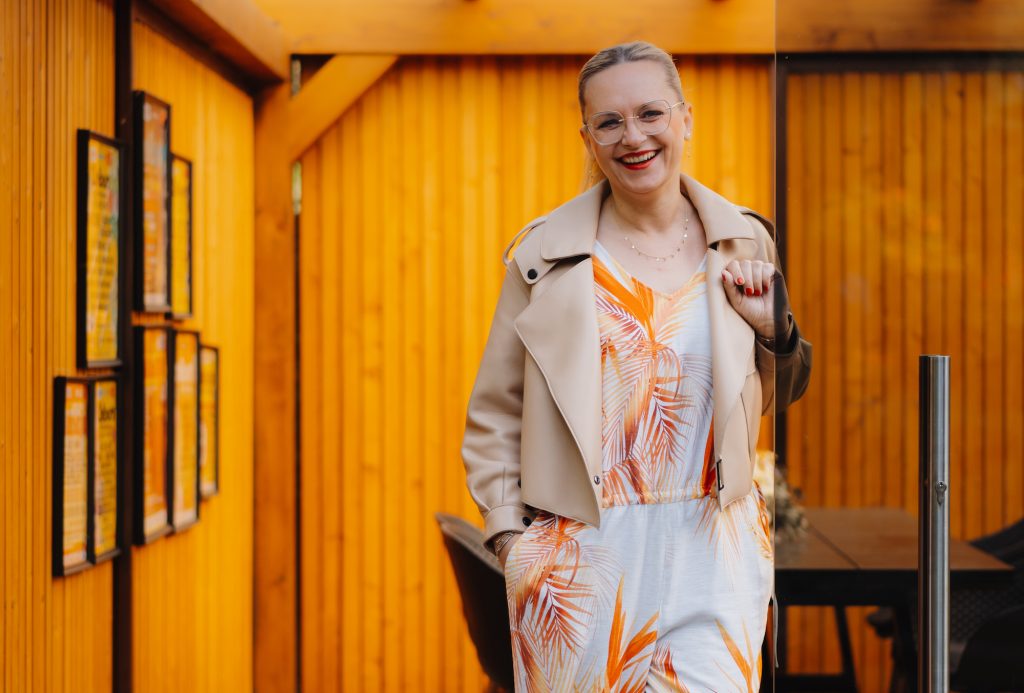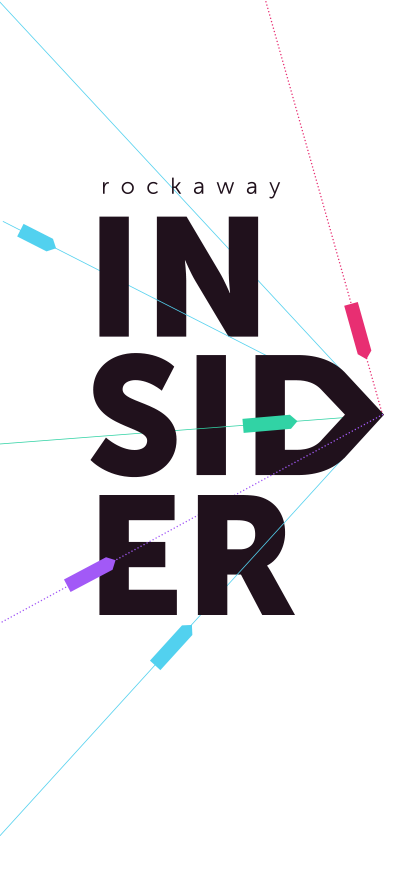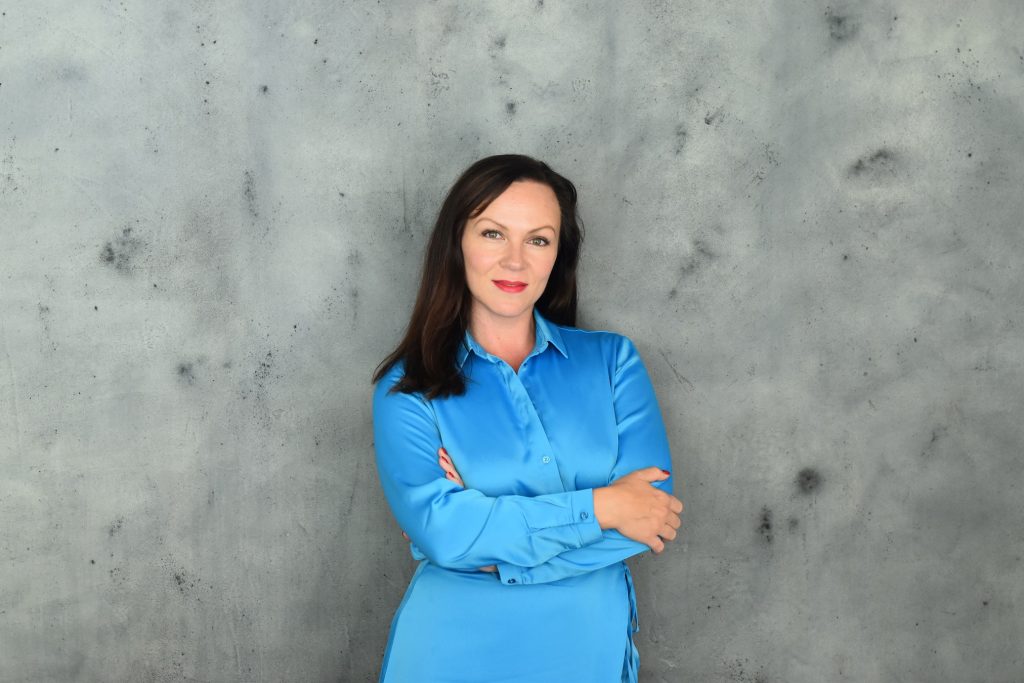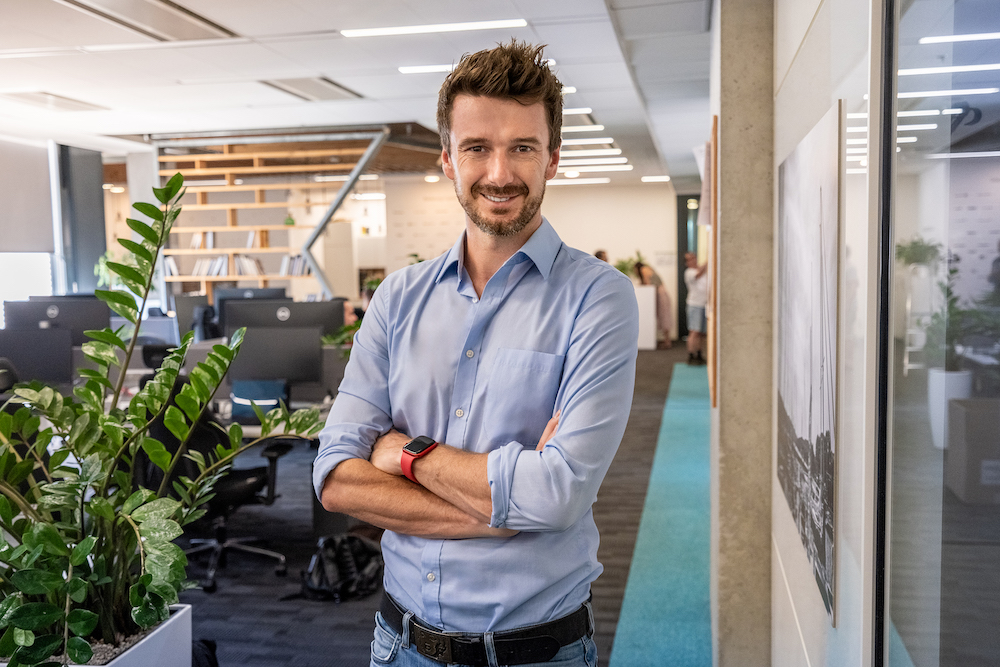All newsColours of Ostrava Executive Director Petra Řezníčková: In the end, everything is possible

Seventeen years ago she joined Colours of Ostrava as head production manager, arranging almost everything – and so today we’d be hard pressed to find someone who understands the organization and operations of music festivals more than executive director Petra Řezníčková. In her own words, she “doesn’t understand music at all”, but that’s hard to believe: prior to linking her life to one of the largest musical events in the Czech Republic, she worked as marketing director for the popular Hitrádio Orion radio station, which later became a partner of Colours of Ostrava. And as she emphasizes, loyalty and trust in the project for which you work is one of the most important qualities that a person in this beautiful but demanding field can have.
WHICH WORK SKILLS ALSO COME IN HANDY IN YOUR PERSONAL LIFE?
None, in my view. For me, they’re two completely different worlds. I’m goad that I’ve succeeded in keeping it that way – separating my private life from my work life. And for a long time I was so good at it that people thought my husband was Mr. Colombo (laughs). After so many years it’s no longer possible, of course, but I still need to be able to get away – to go home to a place after work where I I don’t have to use my work skills. And that’s probably what I’m most grateful for.
WHAT OR WHO INSPIRES YOU MOST AT WORK?
Mrs. Holušová (note: the founder and director of Colours of Ostrava) has now quite radically rejuvenated the booking team, nor have the sales or production teams been left out – they’re people aged from twenty-one to twenty-five, and simply have a different perspective on things. Occasionally I’m quite astonished at the latest trends (laughs). But it’s interesting how it overlaps in a team where we put on a multi-generational festival. Other colleagues and I have been with the festival since the beginning and we’ve gone through a lot together; their knowledge, expertise, professional approach, and unflagging vitality inspire me. Especially Zlatka, who demonstrates her enthusiasm ever day and puts all her time and energy into the festival. We always make fun of it, because going on business trips with her is somewhat demanding. I don’t understand music that much, in Colours I’m known as the pragmatic one, even though – according to Mrs. Holušová – I’m improving every year (laughs). Zlatka steamrolls all of us with her energy and her ideas, to which we say: “That’s not possible because of this, because of that… ” And some two or three months later, we find that we’re actually all working on it. In my experience, we also try to do something for two years, for example, and then I say: “I’m giving up, I’m not going to worry about it anymore.” And she says: “But now it’ll work out.” And I start working on it again, and it works out. Everything has its time and place.
WHAT CHARACTERISTIC DO YOU CONSIDER MOST IMPORTANT IN YOUR COLLEAGUES?
At our company, the most important thing is loyalty to the event itself – you simply have to love the festival. It’s not a “punch in, punch out” kind of job. And hence also to what Mrs. Holušová built over those 22 years. Here, working with people means managing them and motivating them properly so that everything works, whipping up enthusiasm, making them excited about the project.
HOW DO YOU BALANCE YOUR WORK LIFE?
Keeping weekends free is priority number one – basically cutting myself off from work for the weekend and having time for myself and my husband. If your home life isn’t good, your work life won’t be either. So: take care of what you have.
WHAT WOULD YOU SAY TO THOSE WHO WOULD LIKE TO HAVE YOUR JOB ONE DAY?
I always joke that I’m a leftover (laughs). It’s hard work. A lot of the skills that I have are experience-related. I didn’t learn them in school or university. You have to be patient in many ways, because not everything works right away, and you have to keep on going and have adequate resistance to stress and pressure, which is absolute in my position. You have to be willing to accept responsibility, because at that moment it falls in your lap and you have to be confident that the visions of where the festival is going are the right ones.
I don’t know whether in corporations, for example, people know where they’re going – I’d say they probably do – but I didn’t join the company thinking I’d be here that long, that wasn’t my plan. But today I’m glad, of course, because they way we used to do Colours was that we each had a job and worked on the festival on the side. It then got really huge, so we could allow ourselves the privilege of being employees and spending all our time on the festival. So an advantage is believing in the project you’re working on.
IN INTERVIEWS, WHAT QUESTION DO YOU ASK FIRST AND WHY?
This is my absolutely worst managerial quality. In my view, the most important thing is for an interview to be conducted by someone who really knows how to do it on a real HR level. For these purposes I use one of our colleagues who was an HR manager for a long time, because there is no question I know of that would lead me in the right direction and give me a clear choice. I expect people to do what they say they will do and be honest with me and with themselves. And then I find out that 90 % of people say only what we want to hear or make things out to be nicer than they are. I’m incapable of getting my bearings in that sort of situation or reading between the lines. People are hired by our company based on recommendations from our colleagues – because we depend a lot on them knowing a person who is looking for a change and matches what we’re looking for and has the qualities we want for the festival. But otherwise my ability to judge people is quite sad, I’d say (laughs).
IF YOU COULD PICK ANY OTHER PROFESSION, WHICH WOULD IT BE?
Whatever isn’t people-related, but I haven’t found a field yet that would fulfil that, because that’s not really possible these days. I always dream of being a writer, somewhere away from people, and writing a book in, say, 14 days when I get inspired. Or that I’m tending sheep… but then I’d have to sell the wool and produce milk – so that’s always where it founders in my case (laughs).
___
![]()
Did you like this interview?
The Rockaway Insider Newsletter is published every three weeks – subscribe now.
By clicking on “Subscribe” you agree to subscribe to the Rockaway Insider newsletter using the specified e-mail address. You can cancel your subscription at any time directly in the newsletter.
___




